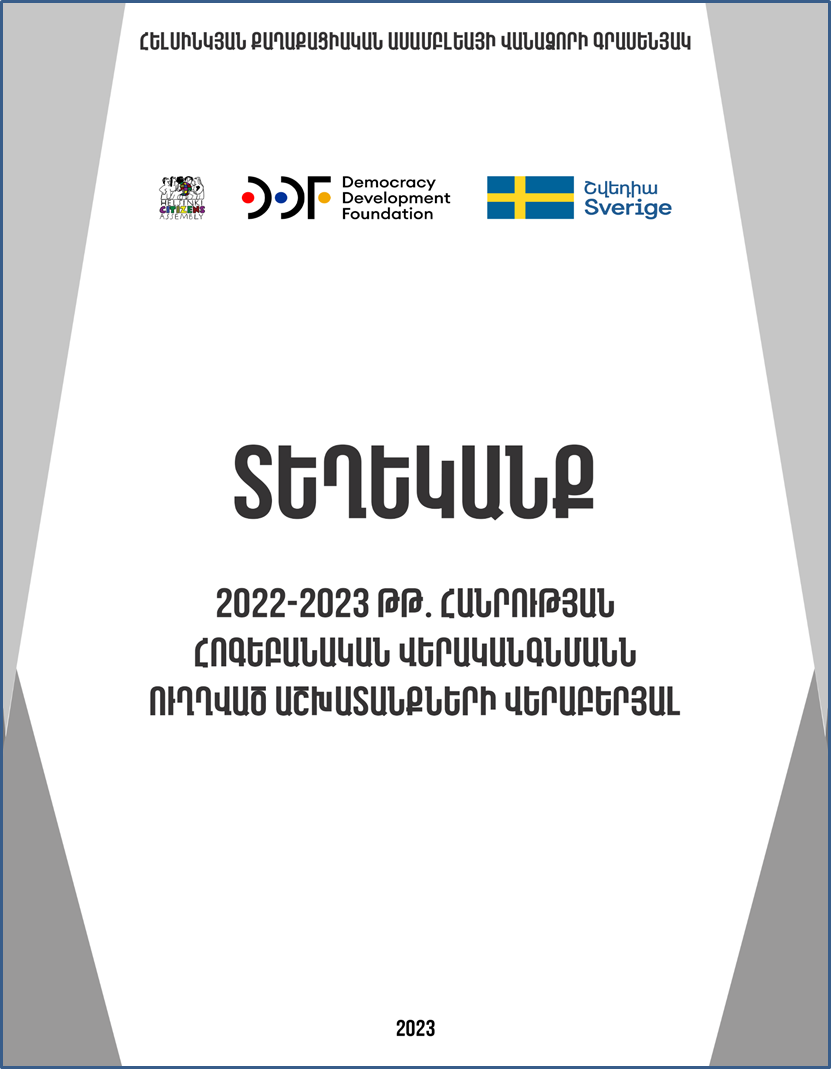On 4 February 2021, after the large-scale war unleashed by Azerbaijan on 27 September 2020, the RA Government approved the procedure of psychological rehabilitation of war participants and public in its Decree N 131-N.
| In the frame of the action aimed at psychological rehabilitation of the public launched on 1 June 2021, the RA Government allocated 100 million AMD from its reserve fund to the Ministry of Emergency Situations, and 6 psychologists were involved in the project. The 6-month-long action was the first coordinated work of the state aimed at psychological rehabilitation of the public. |
In 2021, HCA Vanadzor assessed implementation of psychological rehabilitation of war participants and the public. According to the assessment results, the action covered only 6.4% of the minimum needs of persons directed related to the war.
After the 44-day war of 2020, only 57 war participants and 3 relatives of war participants received inpatient treatment in the National Center for Mental Health Care. 43% of 60 persons who applied to Gyumri Mental Health Center in 2020 (23 injured persons, 3 parents of fallen servicemen) were directly related to the war.
As of the data of 2022, the Armenian side had 3788 victims during the second Artsakh war, and 1494 citizens had disability degrees established. 137 persons were amputated at different levels of higher or lower limbs, 106 persons obtained vision impairment, 11 of whom completely lost their vision. This data also indicates the need for psychological rehabilitation of war participants.
Specialists are concerned over growth of drugs and other types of addictions. There is data that after the war, the use of harmful methods of coping with stress, i.e., drugs, cigarettes,sedation through medication, increased by about 4,5 times. The number of 18-29-year-olds held liable for drug use in 2022 increased by 74% as compared to 2021. Moreover, the number of 18-24-year-olds increased by 80%, while the number of 25-29-year-olds increased by 71%. This age group includes participants of the 2020 war, as well as those who served their military service in 2020 and afterwards.
In addition, as a result of military aggression in 2023, more than 100 thousand people, including 30 thousand children, were forcibly displaced. UNICEF Armenia notes that signs of acute psychological stress are observable among Artsakh children who have found refuge in Armenia: their mental health can deteriorate without urgent support.
Displaced persons also voice the need.
| “I would like to receive psychological support, of course, as to how to talk to children, how to communicate to help them cope with the stress of what they have been through”. |
In this context, the approach of agencies to this issue is problematic. HCA Vanadzor made an inquiry about ensuring continuation of the action aimed at psychological rehabilitation of war participants and the public or drafting a different action, and the Rescue Service of the RA Ministry of Internal Affairs responded that they were not related to ti and did not have any information, as the aforementioned action was implemented by “the Consortium of Mental Health that won the competition”. The RA Ministry of Emergency Situations was the coordinator of the 6-month psychological rehabilitation action. Thus, we can state that the RA Ministry of Internal Affairs Rescue Service does not possess information under its jurisdiction. It should be noted that the Organization’s clarifying inquiry was readdressed to the RA Ministry of Internal Affairs 16 days after it was sent, and we have not received a response as of 27 December (23 days later).
Click to read the full report.

